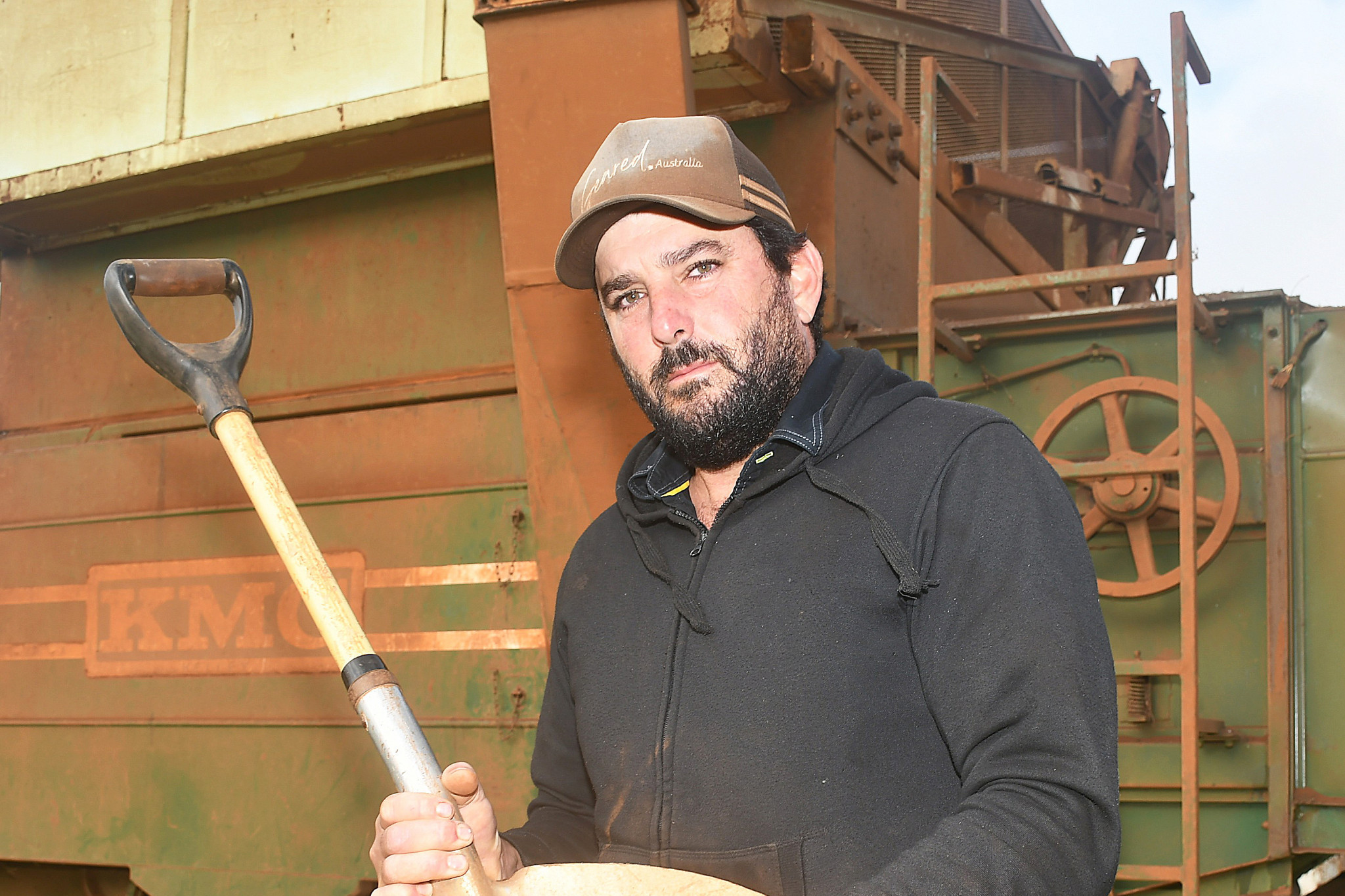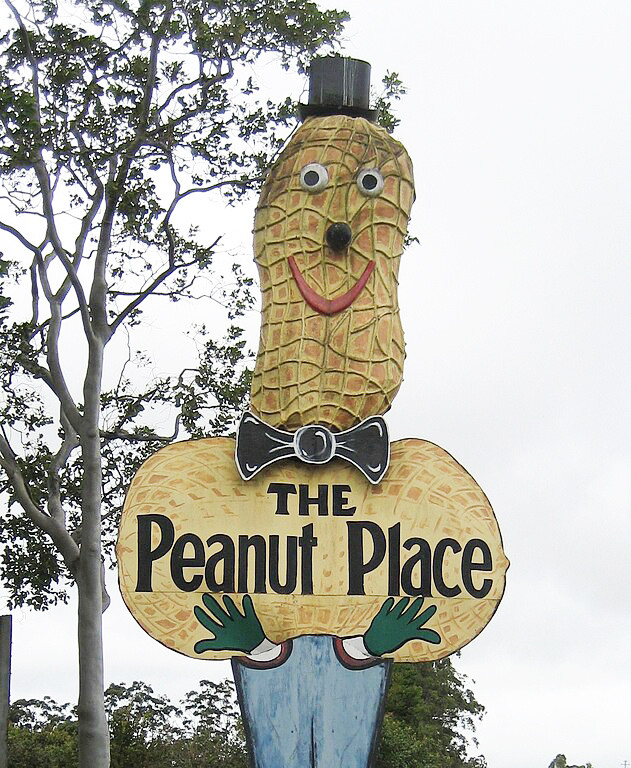General News
15 July, 2025
Anger, disappointment over peanut plant closure
AFTER almost a century, the Tablelands peanut-growing industry is predicted to fold after this season, following news that the Tolga and Kingaroy peanut processing plants will be closed.

The Bega Group announced the closures in a statement last week, saying increased competition from cheaper overseas imports and declining production had forced its hand.
A spokesperson from the company said on Thursday that the Tolga plant, which employed 15 people, would be shut by December. For growers, the company could not commit past this season’s crop.
“It’s devastating news,” local grower Gary Tognola said last week.
“My family has been growing since 1974, and peanuts are a good rotating crop for our cane, good for the soil, and we make an income when we’re resting the cane fields”.
Mr Tognola said another rotation crop, corn, was no longer viable since the onset of the fall armyworm.
“Up to six, seven, years ago, corn was easy, we didn’t have to spray, but now it’s not worth it, it’s too unreliable,” he said.
He also felt for the growers he knew “further up the Tablelands”, who only grew peanuts. “They’re left with nothing”.
Bega Group bought the Peanut Company of Australia (PCA) in 2017, even though it had been under “sustained financial pressure” for several years.
“Despite ongoing investments ... including significant upgrades to site safety and initiatives aimed at supporting local growers to boost production, Bega Group has not been able to establish a sustainable business model,” chief executive officer Pete Findlay said.
Nor had it been able to find a buyer that “could sustain a long-term future for employees and growers”.
The company had conducted a review of the business 12 months ago before calling it.
A meeting was planned between Bega Group and workers on Monday in Tolga to discuss the closure and its ramifications.
“Employees will be offered redundancies, support services, and redeployment incentives and opportunities where possible,” Mr Findlay said.
Mr Tognola said he was surprised the company couldn’t find a buyer, as Crumpton’s peanut company still sourced peanuts from Tolga.
“It’s early days, I suppose we’ll know more after Monday,” he said.
Popular Tolga specialist grocery store The Humpy has been selling local and Queensland-grown peanuts for decades.
The family-owned business continues to have a “fantastic supplier”, but puts the Tolga and Kingaroy closures squarely on the government’s lack of regulation of cheap imports, a lazy effort by the company to promote the Tolga peanut industry, and a general lack of consumer knowledge and support.
“Nothing beats the quality of peanuts grown here by our local farmers and Queensland farmers,” store manager – and daughter of The Humpy business owner, Giovanna Griffiths – Colleen Alba said.
“Unfortunately, our farmers are continually being undermined and let down by all governments, and the super-funded and large farming they support,” she said
“That includes our local government, which increased the rates for the Atherton Tableland to some ridiculous amount, even though recently we have seen other local agriculture industries collapse.”
Colleen said the closure of both processing plants was “unforgiveable” and was another step in seeing the “backbone of our country” being stripped of self-sufficiency and a thriving primary industry.
Member for Hill Shane Knuth said it was “another blow for the Tablelands”.
“This means another FNQ manufacturing plant has closed, and farmers lose a rotation in their crop arsenal, which has already taken a hit over the year,” he said.
“The Tablelands was once a peanut production powerhouse. Now, a staggering amount of peanuts are imported from overseas.”
Another local farmer from Atherton, who did not wish to be named, also voiced his frustrations over the announcement.
“It’s beyond a joke, where’s it going to end? We lost tobacco, potatoes, now this,” he said.
“We are losing an industry that’s about 100 years old with the stroke of a pen. And what about the millions of dollars of equipment. Who’s going to buy it?
“The way we are going, in 20 years, no one’s going to know how to grow a crop. The Government needs to wake up to themselves.”
The history of peanuts goes back to the early 1900s, with the popularity of the crop leading to the establishment of the Atherton Peanut Marketing Board in Tolga in 1926.
By 1951, the state government had announced the construction of the Tolga processing plant.
With great fanfare, the laying of the foundation stone was reported in the Townsville Bulletin, with the Minister for Agriculture, Harold Henry Collins, commending the move in developing a factory that would “process kernels into edible nuts and produce peanut butter”.
The factory also proposed to express oil from nuts and other produce, such as sunflowers, and the residue would form a protein meat available for stock feeding purposes.
At the time of the report, peanut crop in the district was 800 tonnes. This compares to the PCA processing, of approximately 13,000 metric tonnes, in 2025.
In 2021, reports estimated up to 70% of peanuts were imported to Australia – one of the few peanut-processing countries where imports were permitted with minimal tariffs.
According to the most recent Volza’s Australia Import data, Australia imported 1,365 shipments of peanut during October 2023 to September 2024. Within this period, in September 2024 alone, Australia imported 147 peanut shipments, which marked a year-on-year growth of 79% compared to September 2023.
Australia mainly imports from India, Vietnam, and Malaysia. Globally, the US leads the world in peanut imports, followed by Mexico then Singapore.



